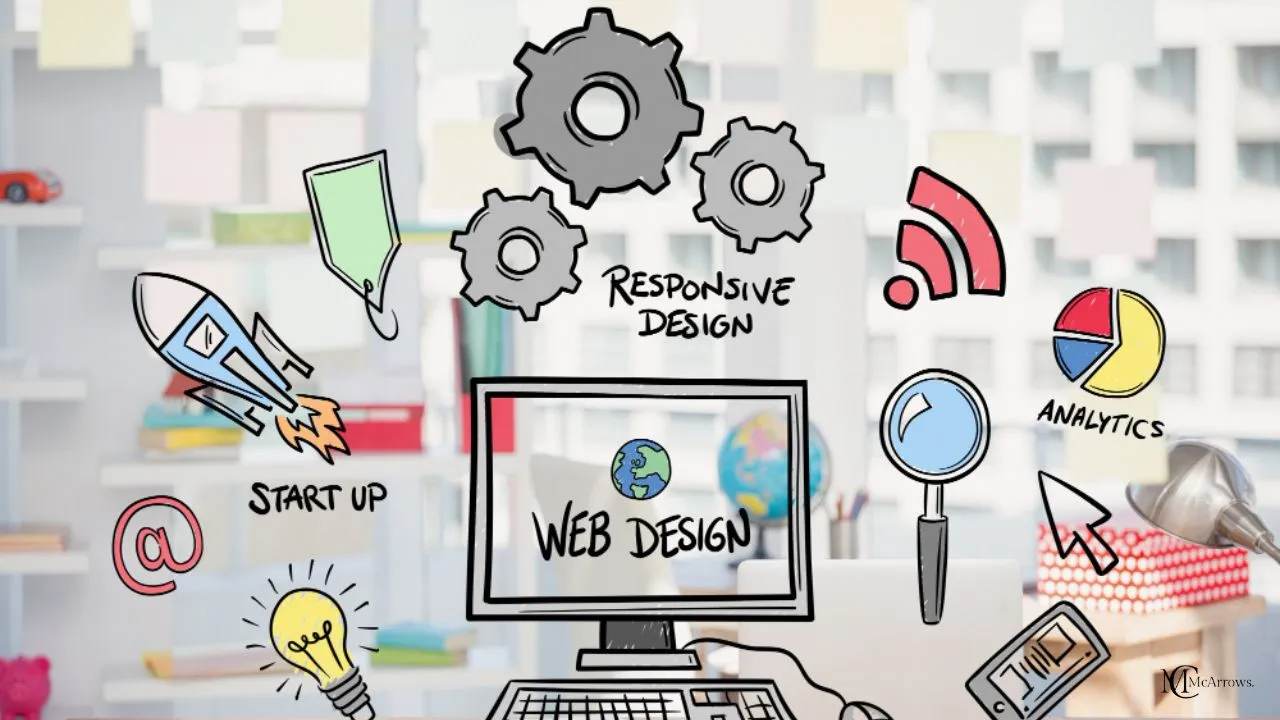When it comes to building a digital presence for your business, you might find yourself at a crossroads: Should you focus on web development or app development? Understanding the differences between these two paths is crucial for making an informed decision that aligns with your business goals and user needs. So, let’s dive into the world of web development vs app development to help you determine the best fit for your project.
Table of Contents
1. Ease of Learning and Use
What is Web Development?
Web development involves creating websites and web applications that run in a browser. It consists of two main components:
Front-End Development
Front-end development, also known as client-side development, focuses on the user interface and user experience of a website. It involves using languages like HTML, CSS, and JavaScript to create the visual aspects and interactive elements that users see and interact with.
Back-End Development
Back-end development, or server-side development, deals with the server, database, and application logic. It ensures that the front-end functions smoothly by handling data storage, processing, and retrieval using languages like PHP, Python, Ruby, and Java.
Key Technologies in Web Development
HTML, CSS, and JavaScript
These are the foundational technologies for web development. HTML structures the content, CSS styles it, and JavaScript adds interactivity.
Frameworks and Libraries
Frameworks like React, Angular, and Vue.js, and libraries like jQuery, simplify and enhance the development process by providing pre-written code and tools.
Defining App Development
What is App Development?
App development involves creating applications for mobile devices like smartphones and tablets. There are different types of app development:
Native App Development
Native apps are built specifically for a particular platform, such as iOS or Android, using platform-specific languages (Swift and Objective-C for iOS, Java and Kotlin for Android). These apps offer high performance and a seamless user experience.
Hybrid App Development
Hybrid apps are built using web technologies (HTML, CSS, and JavaScript) and then wrapped in a native container. They can run on multiple platforms with a single codebase, but may not perform as well as native apps.
Web App Development
Web apps are accessed through a web browser on mobile devices. They are responsive websites that offer a similar experience to native apps but are easier to maintain and update.
Key Technologies in App Development
Swift and Objective-C for iOS
These are the primary languages used for developing iOS applications. Swift is preferred for its modern syntax and safety features.
Java and Kotlin for Android
Java has been the traditional language for Android development, but Kotlin is gaining popularity for its concise and expressive syntax.
Cross-Platform Tools
Tools like Flutter and React Native allow developers to build apps for both iOS and Android with a single codebase, saving time and resources.
Comparing Web Development and App Development
Accessibility and Reach
Web development generally offers broader accessibility since websites can be accessed from any device with a browser. Apps, however, need to be downloaded and installed, which might limit their reach.
Performance and Speed
Native apps tend to perform better and run faster than web apps because they are optimized for the specific platform. Web apps rely on internet connectivity and browser performance, which can affect their speed.
Development Cost and Time
Web development can be more cost-effective and quicker compared to app development, especially when targeting multiple platforms. Developing native apps for both iOS and Android can be more expensive and time-consuming.
User Experience and Interface
Native apps provide a more consistent and polished user experience, leveraging the platform’s features and design guidelines. Web apps might not be able to utilize all device features and may feel less integrated.
Maintenance and Updates
Web apps are easier to update and maintain since changes can be pushed directly to the server. App updates need to go through the app store approval process, which can delay the release of new features or bug fixes.
Advantages and Disadvantages
Advantages of Web Development
- Broader accessibility and reach
- Easier maintenance and updates
- Cost-effective and quicker development
Disadvantages of Web Development
- Potential performance limitations
- Limited access to device features
- Inconsistent user experience across devices
Advantages of App Development
- High performance and speed
- Seamless integration with device features
- Consistent and polished user experience
Disadvantages of App Development
- Higher development cost and time
- Requires separate development for iOS and Android
- Maintenance and updates can be cumbersome
Choosing the Right Path for Your Project
Assessing Business Goals
Consider what you want to achieve with your digital presence. If your goal is to reach a wide audience quickly, web development might be the way to go. If you need to provide a high-performance, feature-rich experience, an app could be a better fit.
Understanding Your Target Audience
Know where your audience spends most of their time. If they prefer browsing on desktops or laptops, a website is essential. If they are mobile-centric, investing in an app might be more beneficial.
Budget Considerations
Evaluate your budget and resources. Web development can be more affordable, but if your budget allows, developing both a website and an app can offer the best of both worlds.
How McArrows Can Help with Web and App Development Projects
Expertise and Experience
McArrows boasts a team of seasoned professionals with extensive experience in both web and app development. They stay updated with the latest technologies and trends to deliver cutting-edge solutions.
Custom Solutions
Understanding that each project is unique, McArrows provides custom solutions tailored to your specific needs. Whether it’s a simple website or a complex mobile app, they have you covered.
End-to-End Services
From initial consultation and planning to design, development, testing, and deployment, McArrows offers end-to-end services. They ensure a seamless process and a product that meets your expectations.
Ongoing Support and Maintenance
McArrows doesn’t just build your website or app and leave you hanging. They offer ongoing support and maintenance to keep your digital products running smoothly and updated with the latest features and security patches.
Client Success Stories
With a portfolio of successful projects and satisfied clients, McArrows has proven its ability to deliver high-quality web and app development services. Their client testimonials speak to their commitment and excellence.
Conclusion
Choosing between web development and app development depends on your business goals, target audience, and budget. Both have their unique advantages and challenges. By understanding these differences and working with a capable partner like McArrows, you can make an informed decision and ensure the success of your digital project.
FAQs
What factors should I consider when choosing between web and app development?
Consider your business goals, target audience, budget, and the specific features and performance you need.
Can I develop both a website and an app for my business?
Yes, many businesses benefit from having both a website and an app to reach a wider audience and offer a better user experience.
How long does it typically take to develop a web app versus a mobile app?
The timeline varies based on complexity, but web apps generally take less time compared to mobile apps, especially native apps that require separate development for each platform.
What are the costs associated with web development compared to app development?
Web development is often more cost-effective, while app development, especially for multiple platforms, can be more expensive due to the need for separate coding and testing.
How can I ensure my web or app project is successful?
Work with experienced developers, clearly define your goals, conduct thorough research, and engage in continuous testing and iteration based on user feedback.

CEO, McArrows
Leverages over seven years in tech to propel the company forward. An alumnus of Purdue and Amity, his expertise spans IT, healthcare, aviation, and more. Skilled in leading iOS and backend development teams, he drives McArrows’ technological advancements across diverse industries.








